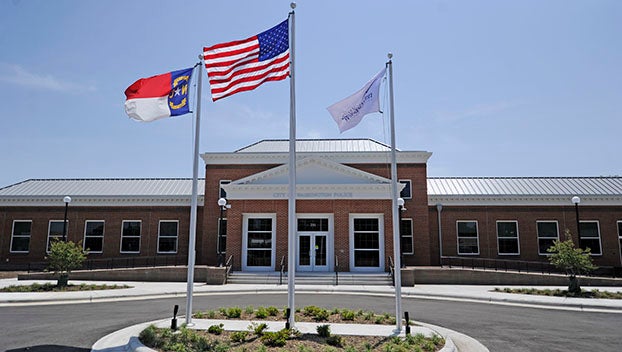Are two-day conventions likely in the near future?
Published 8:16 pm Friday, September 7, 2012
By MATTHEW DALY
The Associated Press
CHARLOTTE — Message to convention planners: Three days are enough.
Both major parties packed their presidential nominating conventions into 72 hours, one day short of the traditional four-day celebration — prompting few complaints from either delegates or the viewing public.
Republicans scrapped the first day of their convention in Tampa, Fla., because of Hurricane Isaac. Democrats, mindful of Labor Day and eager to promote a cost-conscious image, kept their gathering to three days by design.
So will 2012 mark the end of the old-fashioned blowouts the two political parties host every four years? After all, the actual business of the convention — adopting a platform and nominating a presidential ticket — could be completed in a few hours.
Some political heavyweights say the answer should be yes.
“Given as much news as people get today and the way they get their news, I’m not sure having a four-day convention in the future makes a lot of sense,” said House Speaker John Boehner of Ohio, who was the presiding officer for the GOP event.
He also noted that modern conventions are expensive, costing tens of millions of dollars to produce, and create few waves.
While he’s at it, Boehner said the party platform should also be condensed. “If it were up to me, the platform would be on one sheet of paper,” he said. The Republican Party platform came in at more than 50 pages.
Conventions, once used to pick presidential, or at least vice presidential candidates, sometimes in smoke-filled rooms, are now mostly a made-for-TV production, with little real business conducted.
While lobbyists host fancy parties and politicians raise money, the public aspect of the event is confined to a single hour a night on network TV, with much of that devoted to commentary rather than focused on the podium. Most of the work on party platforms and other issues happens off-camera.
Yet with elaborate sets and staging, along with enhanced, post-9/11 security, even the scaled-back conventions are not cheap. Democratic and Republican officials say their conventions cost nearly $120 million apiece.
So is it worth it?
Brad Woodhouse, a spokesman for the Democratic National Committee, said the answer unquestionably is yes. Even in their modern form, conventions are too important to be confined to two days, he said.
“I think it would be really hard for us to draw the narrative, or tell the story (of the presidential candidates) shorter than three days,” Woodhouse said.
“Conventions should be an event,” he added, with enough time for delegates who have traveled thousands of miles to get a “respite,” while helping the parties launch the fall campaign.
Despite that, Woodhouse said Democrats gathered in Charlotte this week were able to get their message out in three days — and so were Republicans a week earlier in Tampa.
“They lost a night of cable coverage,” he said of the GOP decision to cancel the convention’s first day. “But the shorter event “did not appreciably diminish their ability to get their message out.”
Kirsten Kukowski, a spokeswoman for the Republican National Committee, said party leaders are taking Boehner’s concerns to heart. A rules committee in Tampa set up an informal panel to look into convention planning — everything from timing to the duration to how speakers are selected, she said.
“There’s going to be a discussion,” she said, declining to say whether a three- or four-day event is likely in 2016. “It’s something we’ll look into after this election is over.”
James McCann, a Purdue University political scientist who has studied conventions, says they still serve a party-building function and will likely remain part of the political landscape for the foreseeable future.
“If it’s the end, it’s a slow end,” McCann said, noting that each party received three nights of prime-time television coverage they would be hard-pressed to obtain any other way.
Conventions also play an important role for fundraising, partisan networking and kicking off the fall campaign, he said.
“It’s hard for me to imagine conventions going away,” McCann said, although their form already has changed and likely will continue to.
For all the talk of how scripted and controlled modern conventions have become, the past two weeks showed that surprises are still possible.
In Tampa, the most-talked about appearance was actor-director Clint Eastwood’s performance with an empty chair meant to symbolize President Barack Obama. In Charlotte, Democrats hurriedly rewrote their platform to add a mention of God and to declare Jerusalem the capital of Israel after Mitt Romney and other Republicans hammered away at Democrats for the omissions.
Woodhouse, the Democratic spokesman, said another surprise may be in store in 2016: One or both parties might go back to a four-day convention instead of sticking with three days or shrinking them even further.
“There’s something to be said for (an additional) night of prime-time cable coverage, even if it’s not the networks,” he said.





